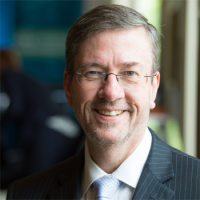Is NATO Prepared for the Future? Reflections on NATO 2030: United for a New Era
How well is NATO prepared for the future? NATO Secretary General Jens Stoltenberg asked former German Defense Minister Thomas de Maizière and former U.S. Assistant Secretary of State Wess Mitchell to co-chair an independent Reflection Group to take up the challenge.
Join Thomas de Maizière and Wess Mitchell in conversation with Global Europe Program Director Dan Hamilton about the Group’s findings and recommendations for the future of the Alliance in their report, NATO 2030: United for a New Era. Congressman and President of the NATO Parliamentary Assembly Gerry Connolly will give introductory remarks.
Selected Quotes
Thomas de Maiziére
“I think what NATO needs is — I can put it very short — more relevance, more trust, and more efficiency. I’m talking in political terms.”
“We should not change NATO as an institution where we [impose] our moral stances on our countries. On Supreme Court issues, on voting system issues and so on and so forth. This would be helping our systemic rivals to interfere there, that’s what they are doing.”
“Cyber-attacks may trigger Article V. This is quite an important sentence. This sentence has consequences… Dealing with cyber-attacks must be part of the deterrence concept.”
Wess Mitchell
“Strategic adaptation is required for NATO in order to survive. That’s true for all organizations, you can’t operate without understanding and intelligently relating to your surroundings. NATO's longevity has been the result of its ability to accurately read the cues of its external environment and change itself accordingly.”
“NATO is the only organization that can be the principle venue for organizing the West for this period of more intense geopolitical but also ideological competition.”
“Our report highlights the fact that these are authoritarian states [China and Russia] from which the West has to distinguish itself. Not just on principled grounds but on security grounds in denying them the advantage of undermining Western societies from within.”
Gerry Connolly
“Everything we do to promote democracy is juxtaposed against the alternative - the authoritarian alternative. There is a narrative that we’ve got to counter. That narrative comes from Putin and Xi saying: we can deliver economic prosperity, we can improve your quality of life and the deal, the exchange is, you agree to the compromise of freedoms, pretty fundamentally.”
“Where we find member nations straying, we call it out. It’s not okay to compromise your judiciary to the point where you’re compromising the rule of law and independence on that judiciary. Not okay to crack down on the press. It’s not okay to try to suppress political dissent and the opposition.”
“Biden is absolutely an internationalist. He is absolutely committed to the sacred nature, from his point of view, of the trans-Atlantic alliance. He is absolutely committed to the United States playing a leadership role, in partnership however with our allies.”
Speakers


Introduction

Moderator

Hosted By

Global Europe Program
The Global Europe Program is focused on Europe’s capabilities, and how it engages on critical global issues. We investigate European approaches to critical global issues. We examine Europe’s relations with Russia and Eurasia, China and the Indo-Pacific, the Middle East and Africa. Our initiatives include “Ukraine in Europe”—an examination of what it will take to make Ukraine’s European future a reality. But we also examine the role of NATO, the European Union and the OSCE, Europe’s energy security, transatlantic trade disputes, and challenges to democracy. The Global Europe Program’s staff, scholars-in-residence, and Global Fellows participate in seminars, policy study groups, and international conferences to provide analytical recommendations to policy makers and the media. Read more


Canada Institute
The mission of the Wilson Center's Canada Institute is to raise the level of knowledge of Canada in the United States, particularly within the Washington, DC policy community. Research projects, initiatives, podcasts, and publications cover contemporary Canada, US-Canadian relations, North American political economy, and Canada's global role as it intersects with US national interests. Read more
